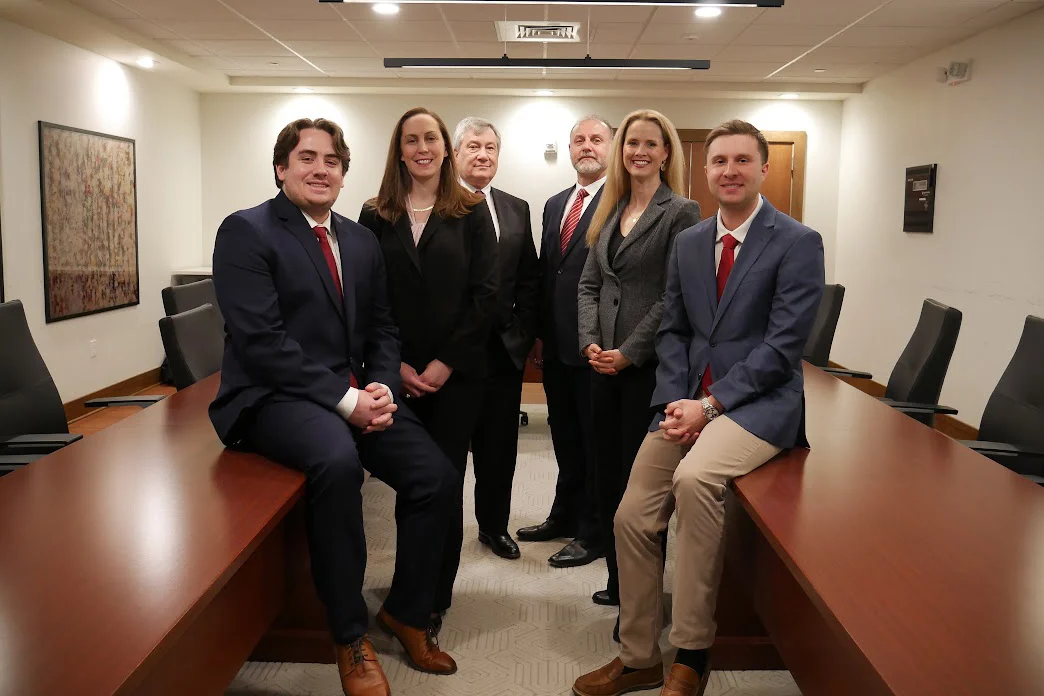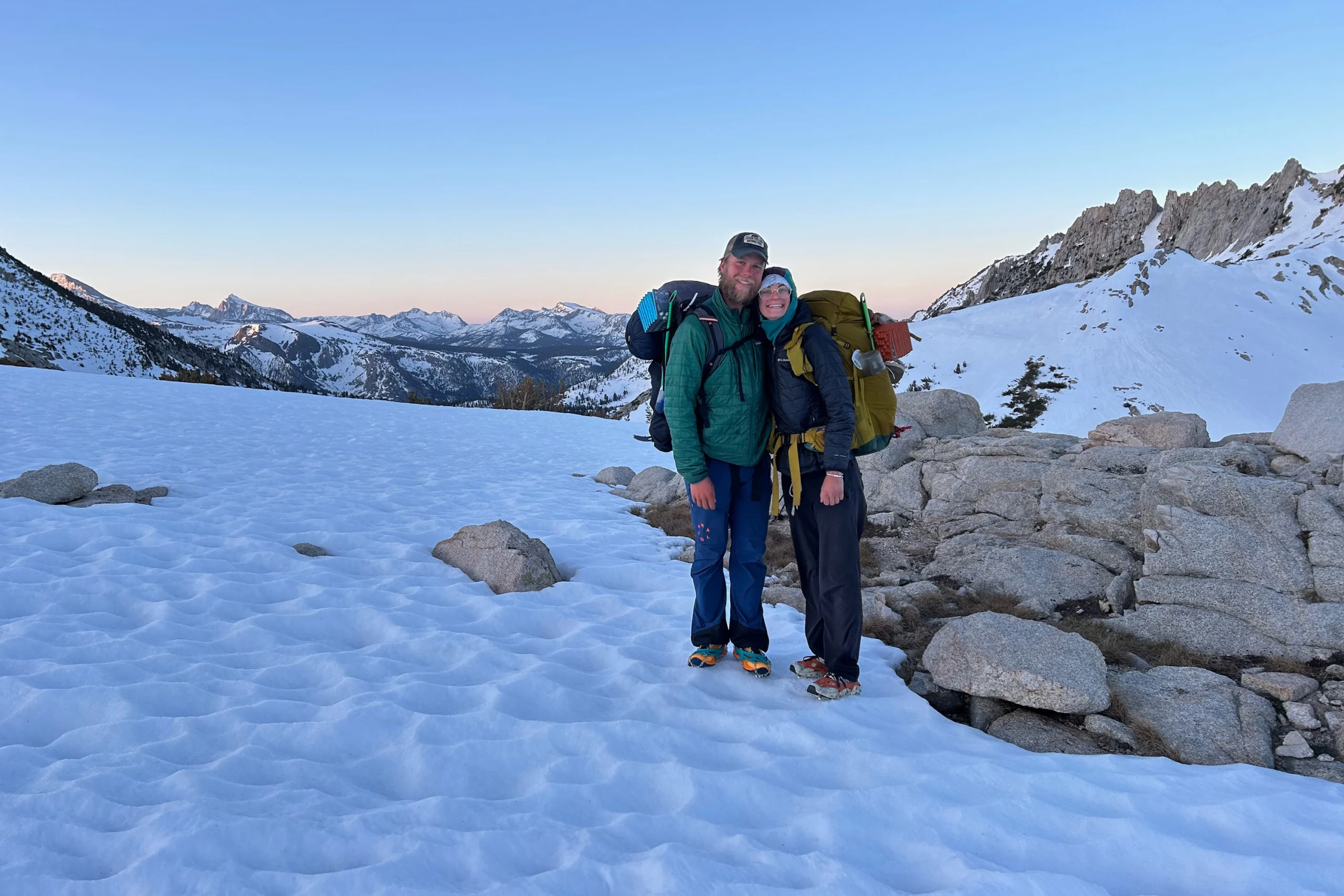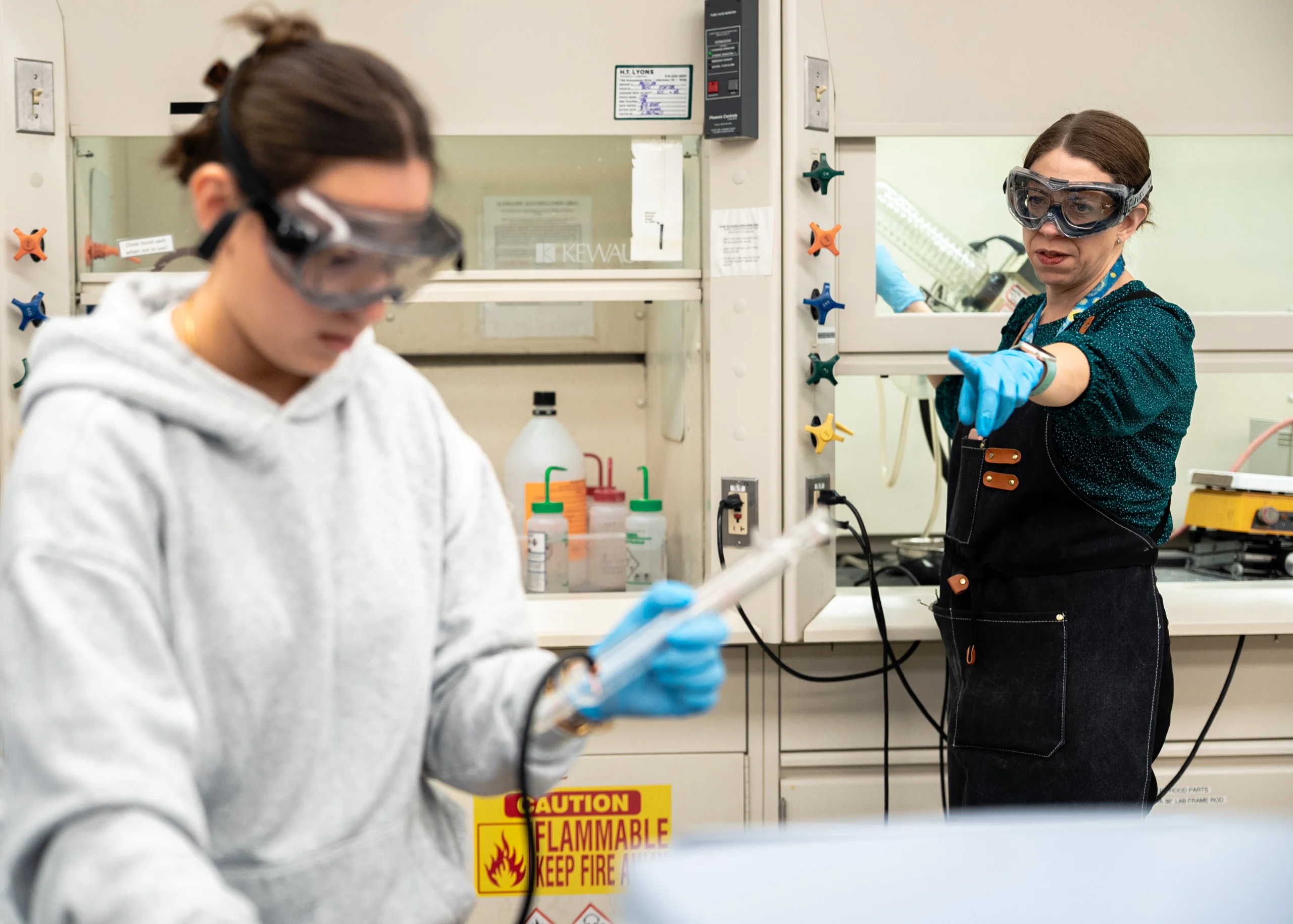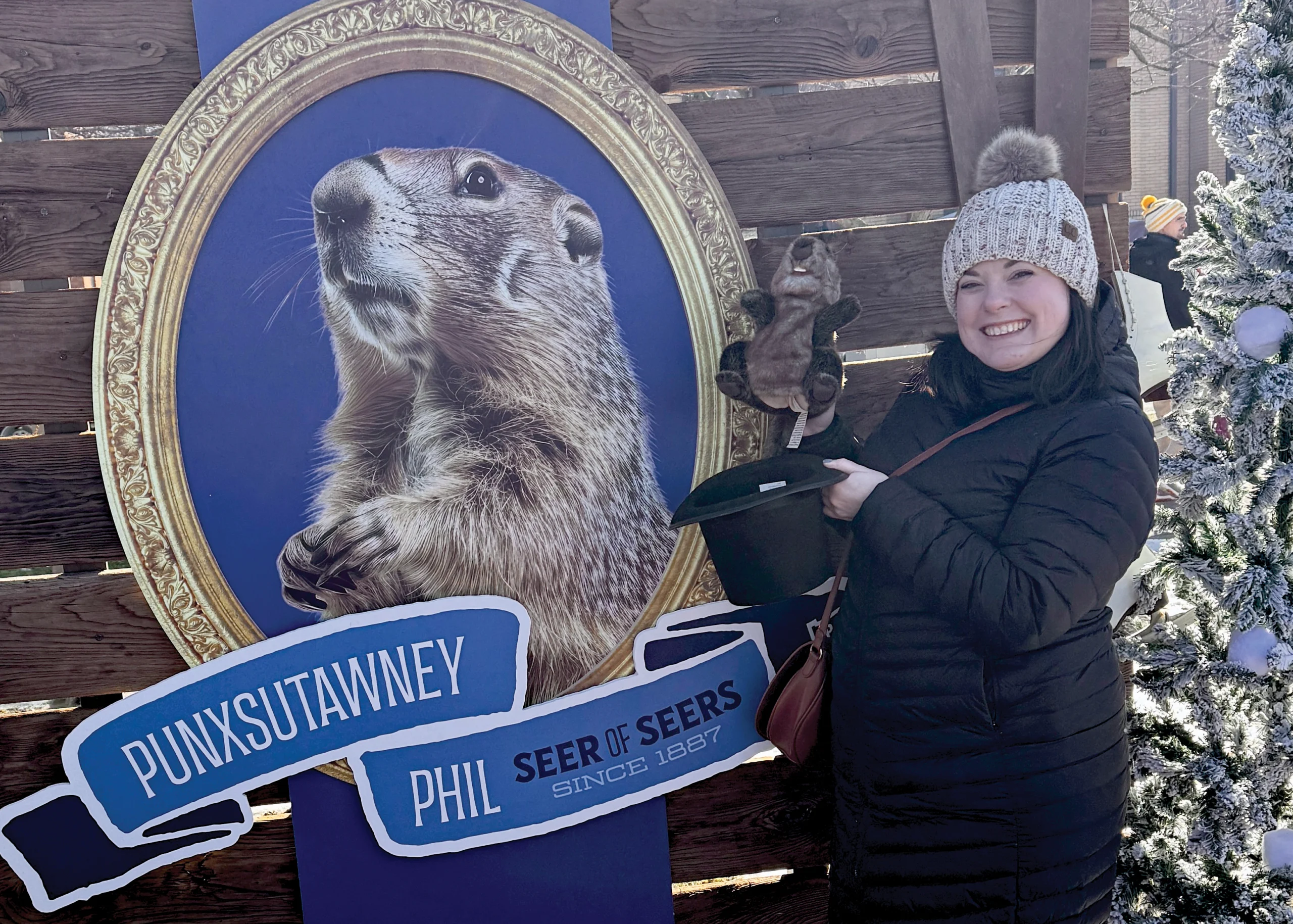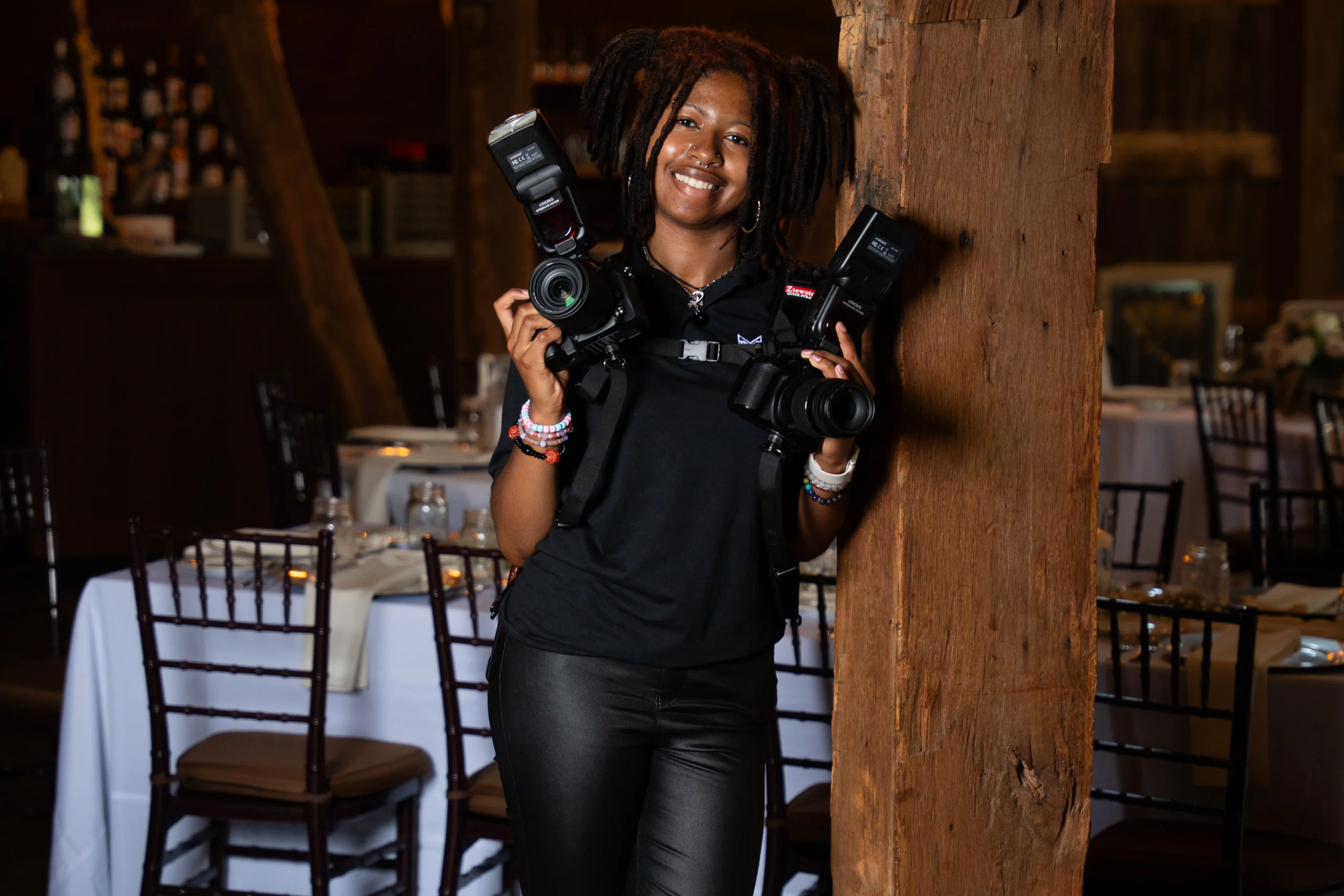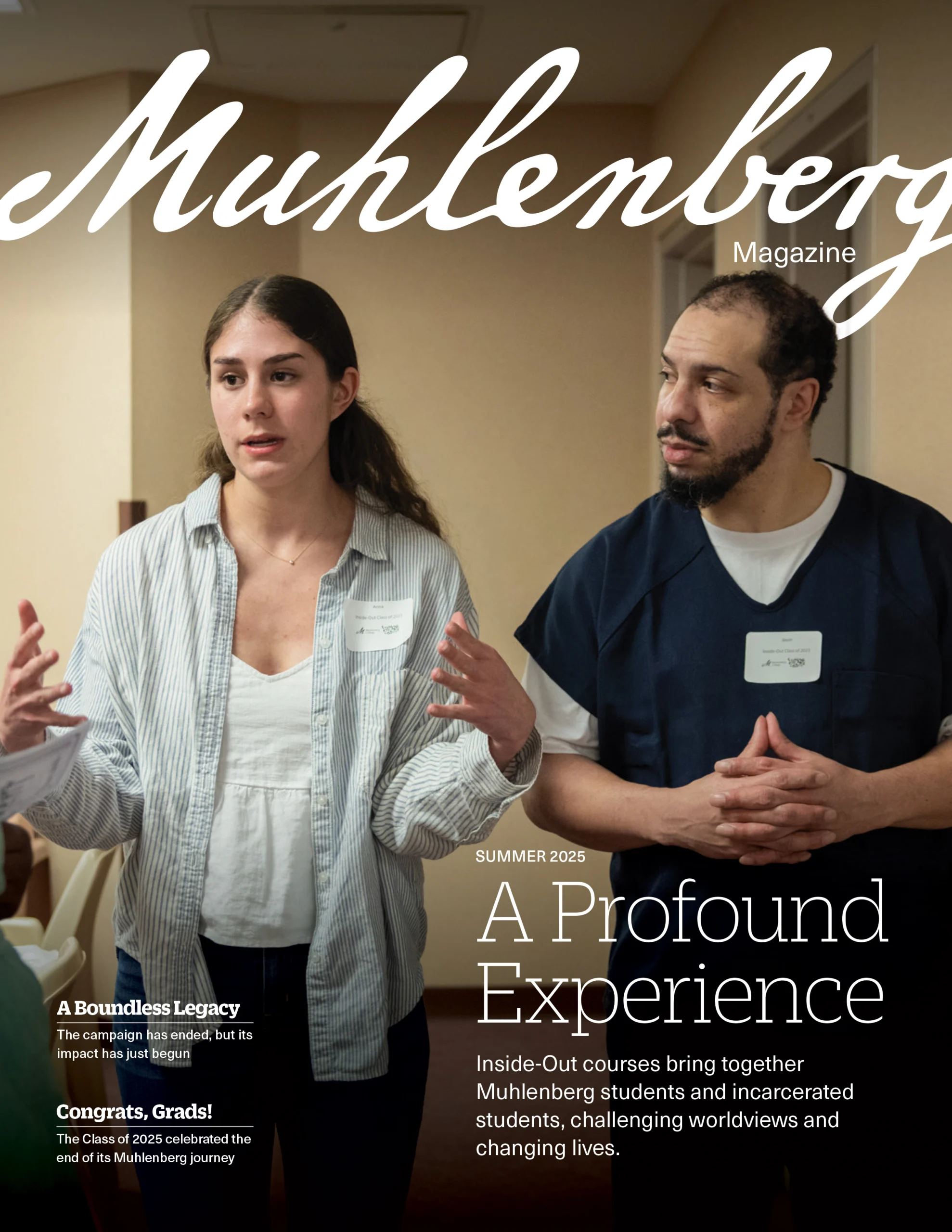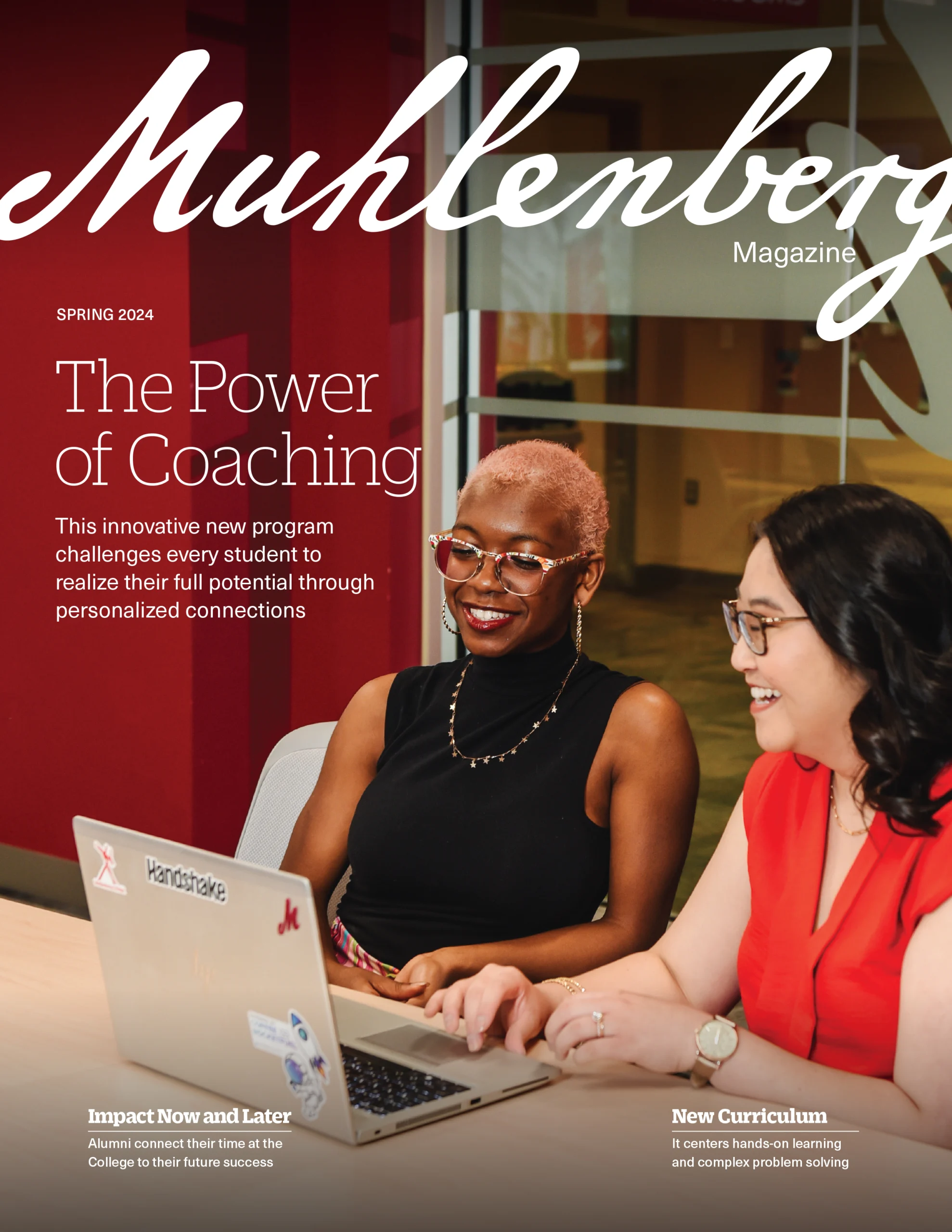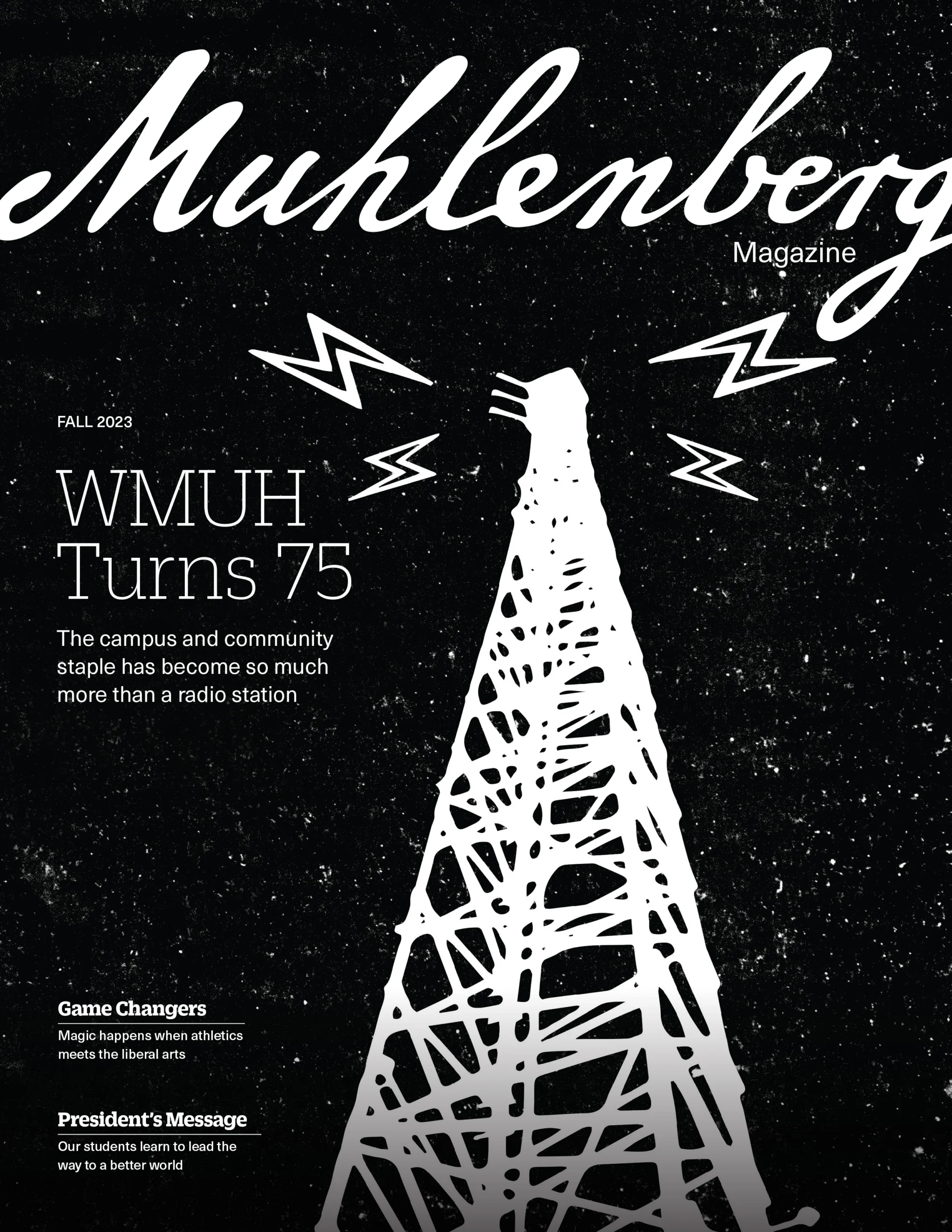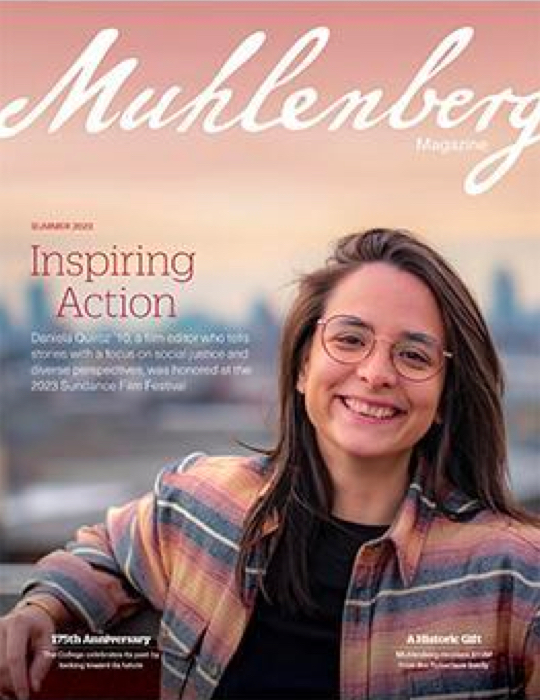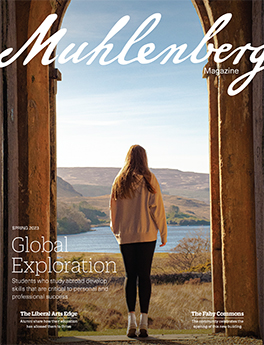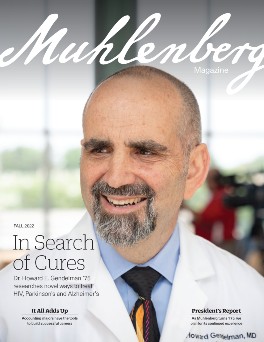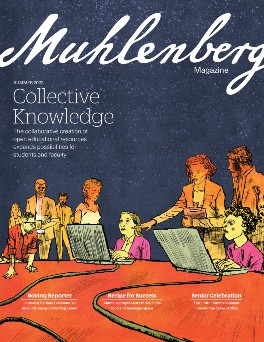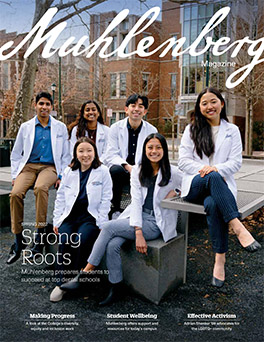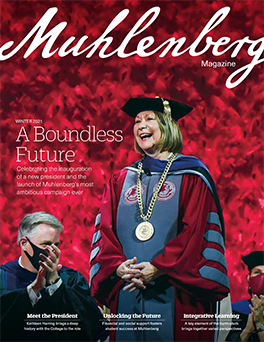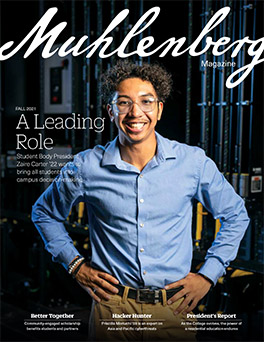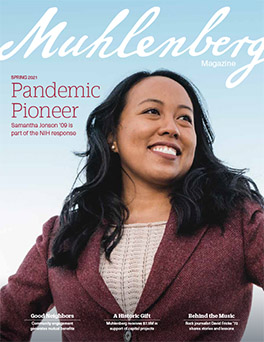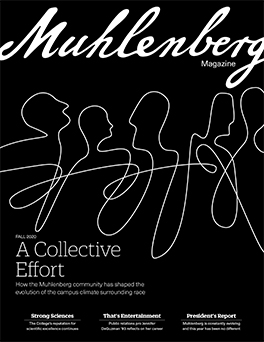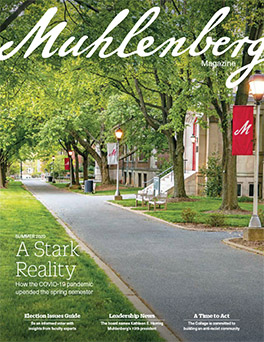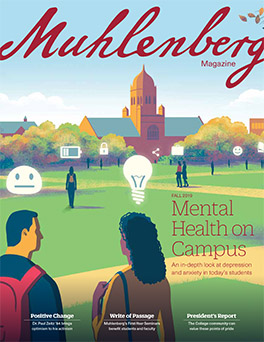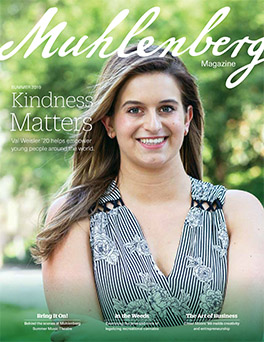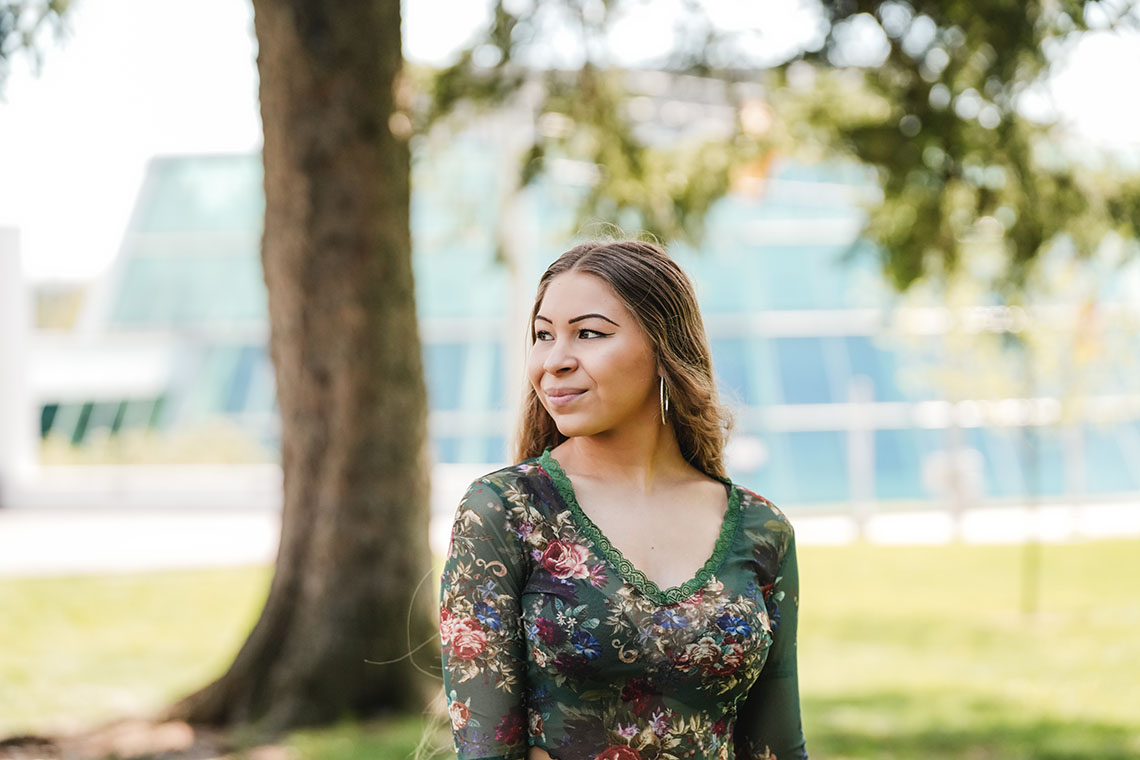
Meet Lexy Widi ’26
Widi is a dance and neuroscience double major from Stillwater, Minnesota.
Dance has been part of her life since she was a toddler …
“I started dancing when I was about 2. I’m of Anishinaabe descent, and I was a fancy dancer in powwows while I attended American Indian Magnet School up until I was maybe 10. That’s when I left my school and started at Catholic school. I saw the dance team that would perform at halftime at the football games. These girls had amazing makeup and cute little outfits and I was like, ‘I want to dance at the football game.’ My friend’s older sister was the captain, so I showed up to practice and was suddenly on this team. I also did musical theatre growing up. These experiences taught me musicality, how to learn choreography, and the performance aspect of dance.”
… but her experiences during the pandemic inspired her to seek out more in-depth training.
“When Covid hit, the dance team was no more. Theatre was no more. So, I started watching dance classes on YouTube. I realized how much more there was to dance than what I was doing and that I’d love to do it in college. I’d only danced on stage in a musical or on turf, so I started looking up dance studios in the area and found Curio Dance School. When I started, I told my studio, ‘I want to be a dance major. Just prepare me for a college education.’ And they did it. It just doesn’t happen that someone starts technical dance training at age 16 and goes on to be a successful dance major in college. It’s very rare. And not to toot my own horn, but — toot, toot! — it shows my dedication, how hard I work. Dance was something I was really passionate about. It’s something I still am very passionate about. I was putting everything I had into those two years at that studio.”
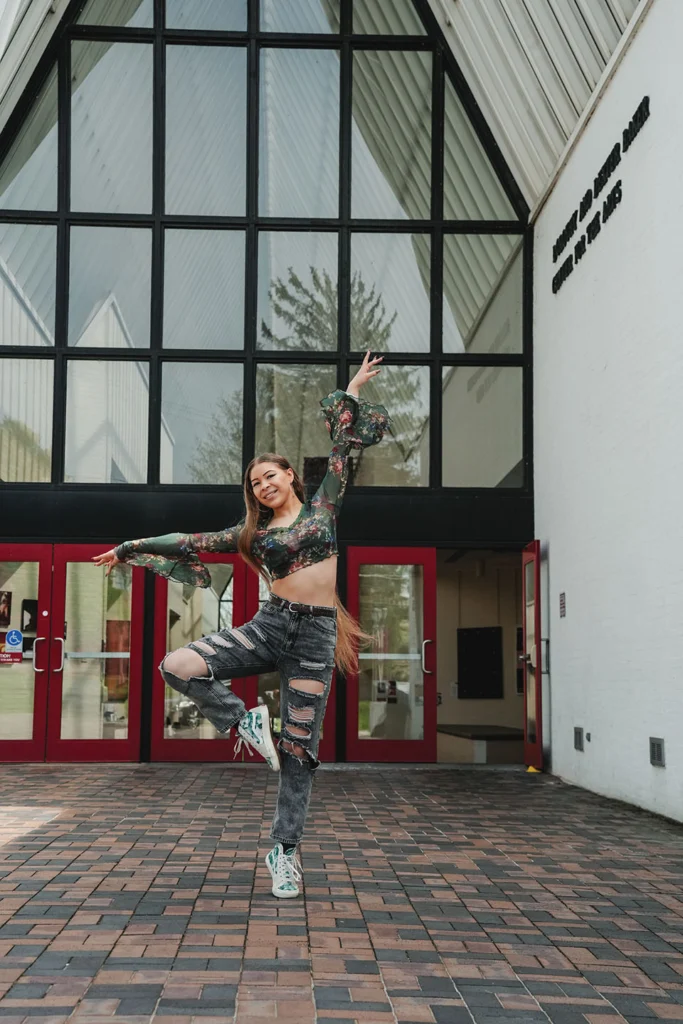
Science is another longstanding interest, and her neuroscience major inspired her to pursue undergraduate research.
“Science was always something that made sense to me. I’m very left-brained, very type A. I took every type of science I could in my high school, which had an amazing science program completely run by women. My favorite bio teacher in high school, Serene Deuth, was a dancer: She’d been a cheerleader for the Kansas City Chiefs and the Minnesota Vikings, and she taught in a local studio also. I saw neuroscience on the Muhlenberg website when I was looking at colleges, and the first person I talked to was Ms. Deuth. She talked about the small neuro things we’d done in class and they were things I excelled at. I’ve taken two neuro classes so far, and [Stanley Road Professor of Neuroscience] Jeremy Teissere’s Rethinking Drugs and Drug Abuse is the most fascinating class I’ve ever taken. I’m training to be in his lab, researching the GABA receptor. Neuroscience is such a new field. There are so many opportunities for new discoveries.”
She was selected to be part of the RJ Fellows honors program.
“Our main purpose is societal change through community engagement. The first thing we do on campus is pre-orientation, four days dedicated to learning about our role on campus as agents of change through community service. So during those four days, we’re doing a lot of community engagement, a lot of volunteer work, with nonprofits in the area. Most of us aren’t from Allentown, so we’re getting to know the surrounding areas where we can engage with the community. One of the places that we went was Community Bike Works, [a youth organization that teaches life lessons through bicycles to the young people of the Lehigh Valley]. Now, I volunteer weekly at Community Bike Works, and I’m working on a project with the students they serve to make them a new logo.”
She recently launched The Hìtëkw (Tree) Project, a student-run effort to educate campus about the Lenape, the Indigenous people of the Lehigh Valley, who were forced off the land on which Muhlenberg sits in the 1700s.
“The Oneida people in Wisconsin, on the reservation, they have the street names just in Oneida. The highway signs are written in Oneida. Because the reservation is in an urban area, non-Indigenous people live there and see the signs, too. It’s an easy way to bring the language back to the land. I thought we could do the same with the signage labeling the types of trees on campus. I worked with RJ Fellows advisor [Professor of Biology and Director of Sustainability Studies] Richard Niesenbaum, along with the Office of Community Engagement at the 2024 Alliance for Justice Active Leadership (AJAL) retreat, to get it started, and now, three other students and I are knee-deep in that project. We did all the translations, but we would like the Delaware [Nation, one of the federally recognized tribes with Lenape heritage] to look them over. We’re trying to schedule a meeting with them. We’re also meeting with the campus arborist and the head of Plant Operations to finalize plaque size and design, how they’ll be attached to the trees, what they’ll be made out of. Hopefully the plaques can be installed over the summer.”

